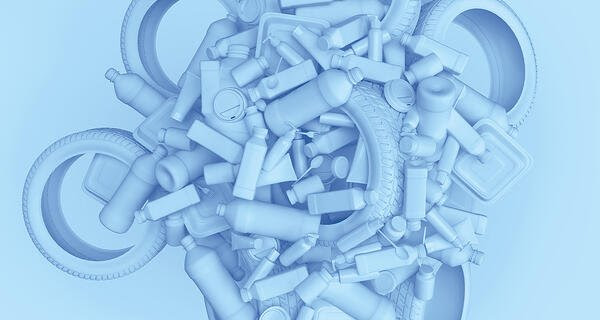There is a chance to move away from processing virgin crude oil and replace it with renewable feedstocks

If you asked the public who could lead us into a new, sustainable era, refineries may not be their first answer. But looked at another way, maybe they should be.
Manufacturing makes up 31% of core CO2 emissions. That means that those who “make” or those who supply them — refineries such as yours — have one of the biggest impacts on the climate. But it also means you are among those that have the power to change things the most.
From linear to circular
The situation is simple: the world needs to use less for more. That means using less resources or energy to make the products we all need.
Meanwhile, mountains of waste are incinerated, sent to landfill and float in our oceans. The consensus is clear: that has got to change — immediately.
But this means there is a huge opportunity to be a key part in facilitating the transition from a linear economy to a circular one. Those mountains of waste can now be mountains of resources.
Better business for a better planet
Those who lead on the circular economy now can benefit. And refineries can be a key component of this change. There is a chance to move away from processing virgin crude oil and replace it with renewable feedstocks.
This would help meet global decarbonization targets, close the waste-to-plastic circle, and to adapt to a fall in demand for virgin fossil products from petrochemical companies.
Operators of steam crackers are looking for feeds from a circular source, not virgin fossil. Therefore, you can reverse the slowly decreasing utilization of existing assets you might be currently experiencing.
Innovation means opportunity
The good news is this: Refiners can now take a strong lead into a new, profitable business area. Advanced chemical recycling via feedstock is a technology that has emerged that allows companies to turn waste into income and produce clean, premium feedstock for steam crackers.
Being a first mover into this area is a promising avenue for refineries to utilize the assets they already have to provide a feedstock for producing circular plastic. In doing so you can meet the increasing demand from petrochemical companies and their customers (or brand owners) for a more sustainable, circular plastic product.
Analyze to optimize
So how are refineries moving into this field? Topsoe is assisting many projects as we speak, and accurate analysis is crucial to making it a success.
Among other things, you should analyze:
All leaders need advisors
With a multitude of requirements and considerations, this is not a straightforward process. That is where Topsoe comes in. PureStep is a proven solution that is already helping many companies to enter the advanced chemical recycling market and become leaders in the field.
As an initial step, we conduct full studies to ascertain what the possibilities are and make recommendations based on this. With our extensive industry knowledge and experience, we can make a thorough assessment of your currently available assets and work with you to decide what can be reused and what should be added.
We have a comprehensive database and in-depth R&D to tap into so we can analyze your feedstocks. And, when it comes to steam cracker requirements, we have the knowledge to assist your decision making.
Tailored technologies over off-the-shelf solutions
When we have all the information, we will select out of our portfolio of technologies and customize them for your existing assets. For example, we can make recommendations on requirements for purification, or whether end-point reduction is needed to lower the final boiling point of the product.
Based on these options, we can give a CAPEX estimate and present what the output will be from that investment. From there we can have a deeper dialogue about how we can help your refinery to revamp and renew your business.
Subscribe to our newsletter & stay updated.